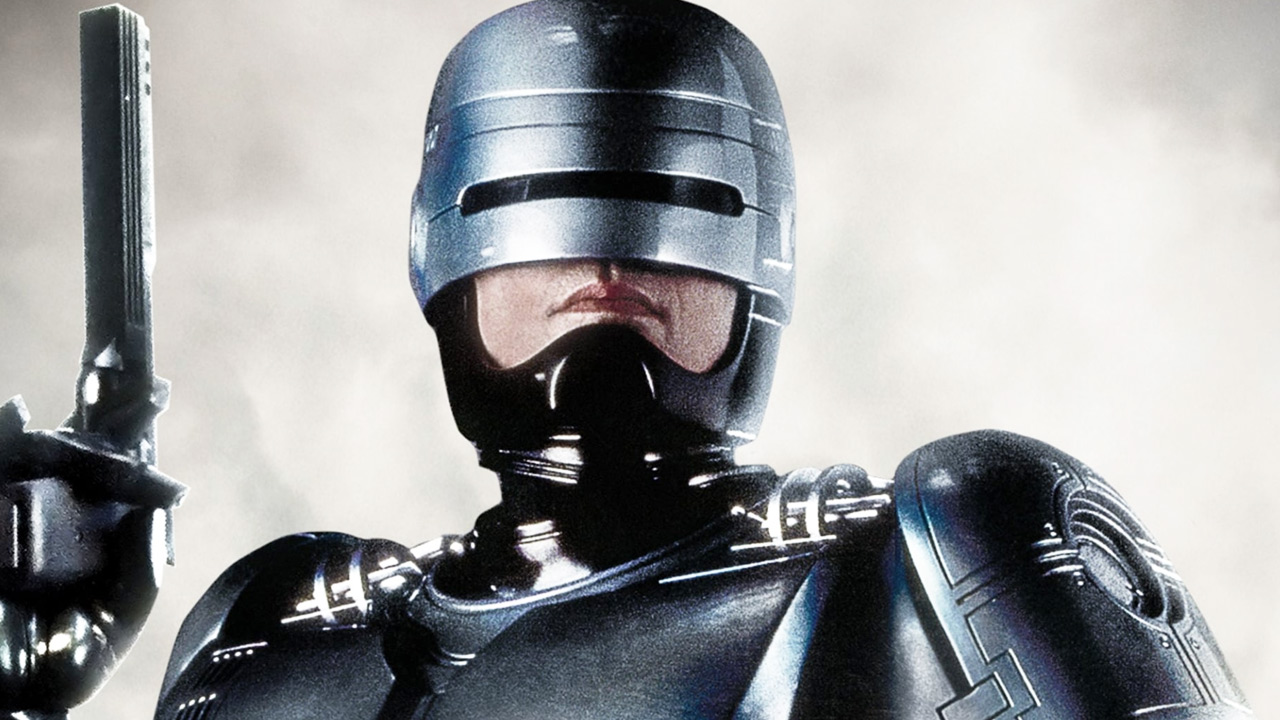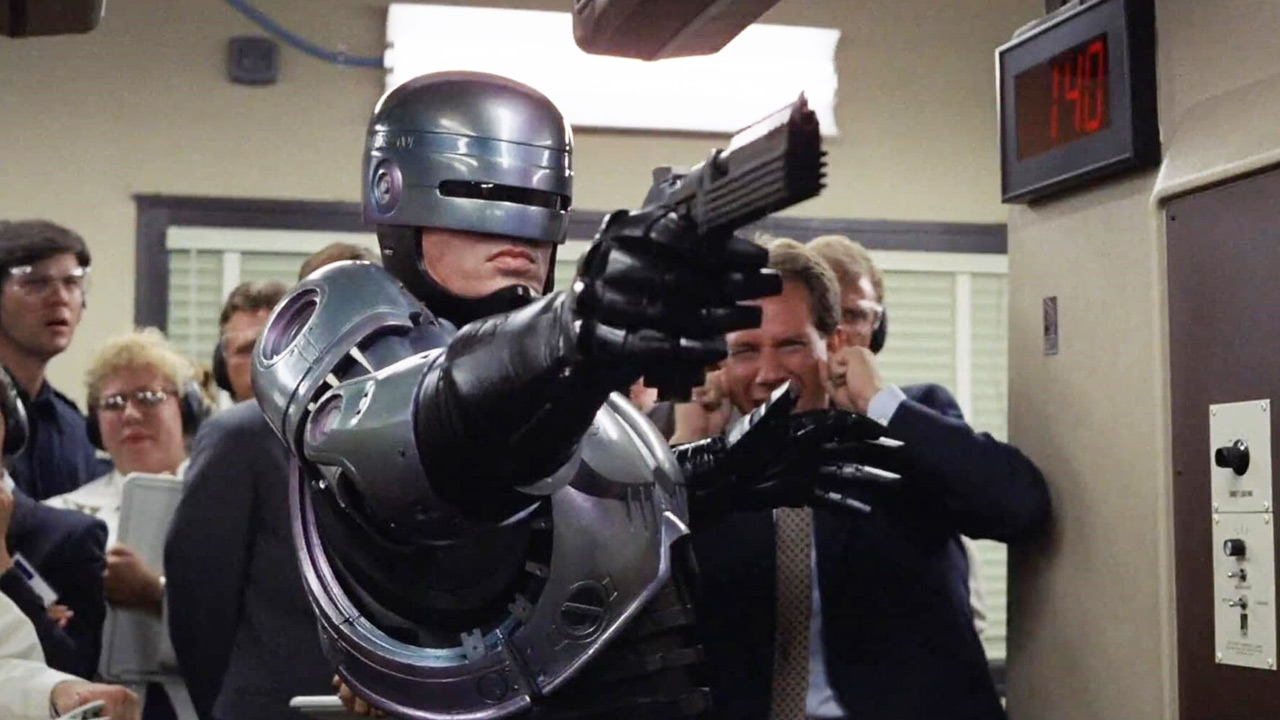Retrospective: RoboCop has badass 80s action and brutal social commentary
“Your move, creep.”

Period drama Benedetta has collected tonnes of rave reviews, but director Paul Verhoeven has also helmed very different films before—such as 80s classic RoboCop.
Paul Verhoeven is known for directing films that were initially dismissed as low-rent genre pictures, only to remain in the zeitgeist and grow in the public imagination. Think Starship Troopers, think Total Recall, and think RoboCop: the badass 1987 action flick about a cyborg law enforcer created to fight crime while minimizing human input—because real people are annoying, with their wages and working conditions and erratic behavior.
Set in a dystopian crime-riddled Detroit where the police force has been outsourced to a corporation, the hero’s genesis is less about doing the right thing than the cheap, effective, profit-maximizing thing—giving him a very different aura to countless other do-gooders. With a premise as cynical as this, Verhoeven extending a middle finger to the conservative capitalist mindset, there’s no wonder the film has remained relevant in an era of increased awareness of issues such as police brutality and privatized security forces.
Prior to the protagonist’s Darth Vader-like genesis, a near-dead man fused to a machine that keeps him alive but doesn’t make him the friendliest looking chap, a boardroom of company executives are introduced to “the future of law enforcement” in a presentation that goes horribly wrong. A heavily armed robot malfunctions and pummels one of them full of bullets, prompting variations on that old chestnut: “the technology isn’t ready yet.”
The company therefore decides to take what’s left of Alex Murphy (Peter Weller), a cop shot who has been shot to pieces and is virtually dead, and combine him with a high-tech machine. Theoretically offering the best of both worlds: a super-duper robot with human consciousness.
Things sort of go to plan and sort of don’t. The titular hero is definitely an effective crime fighter, easily foiling robberies and street crimes and tossing goons around like playthings. In one amusing sequence he grabs a crime lord (Kurtwood Smith) and simultaneously informs the fiend of his rights while trampling over any notion of police responsibility.
“You have the right to remain silent,” RoboCop says, then throws the gangster through a window. “You have the right to an attorney,” he continues, picking him and hurling him through another window. “Anything you say may be used against you,” he adds, before, well, you guess what happens next. This is Verhoeven’s cynicism in overdrive: the bad guy has been reprimanded, but in the process a far greater moral imperative has been lost.
We see commercials broadcast in the film’s gnarly future, such as a TV ad for a nuclear weapon-themed family game called Nukem (“get them before they get you!”) and a car ad featuring a rampaging T-Rex, accompanied by the message one should buy the vehicle in question because “bigger is better.” This is connected to one of Verhoeven’s key messages: that weapons always get bigger and better, more powerful and more explosive, but brute force ultimately just creates more problems.

This is also a message in Starship Troopers, an anti-fascist commentary lampooning the tendency of governments to respond to social issues and challenges with the same nuke ‘em, bash ‘em philosophy that drives countless wars and conflicts. In RoboCop, the hero has also been programmed by a nefarious corporation, so even if you’re with him in practice, hooting for him to take down low-lives and scumbags, you can’t really be with him in theory. The question of whether he/it can be considered human is explored in an on-the-nose way in the film’s 1990 sequel.
A superior companion piece emerged many years later in Leigh Whannell’s 2018 sci-fi Upgrade, which launches a similar premise from the other side of the law—following a paraplegic able to exact revenge on those responsible for his wife’s death through a computer that takes over his body. Both films point towards an age of transhumanism, suggesting limbs and even thought processes will one day be boosted or replaced by machines and AI. This discussion involves the ethics of algorithms: a more important topic than ever in the age of self-driving cars, and other technologies engineered to make potentially life-or-death decisions.
There’s a lot going on under the bonnet (or behind the armour) of RoboCop. All this stuff is there if you want it to be—but if you’re just after a muscular 80s action flick, with explosions and one-liners, that’s perfectly cool too. Your choice. Or in the words of the hero: your move, creep.

























